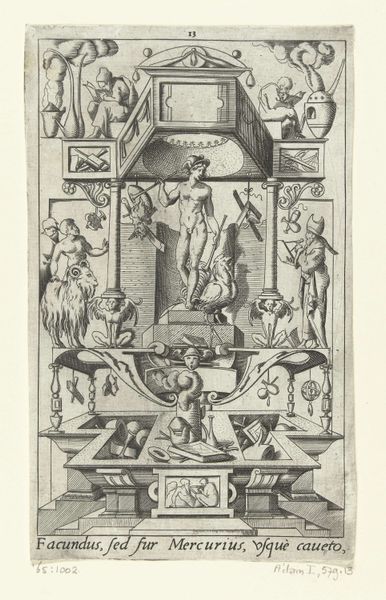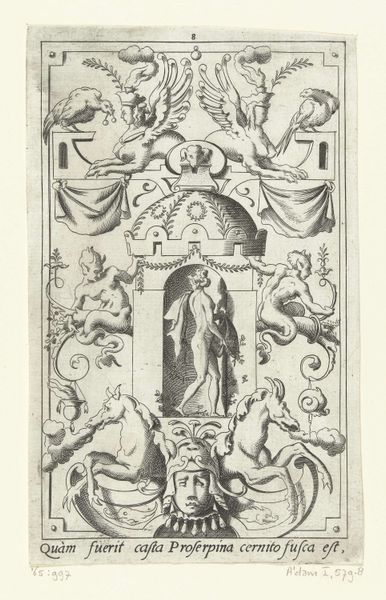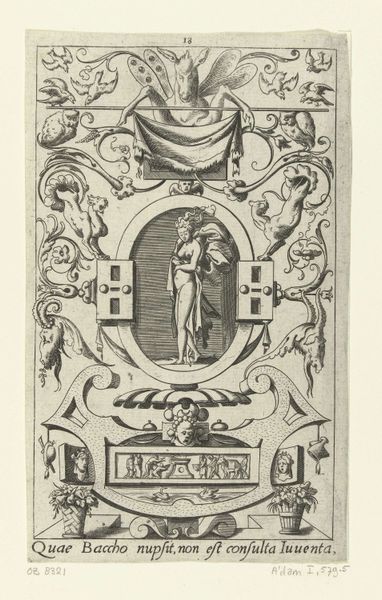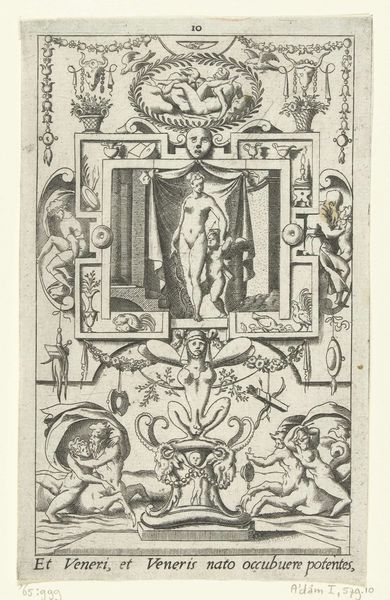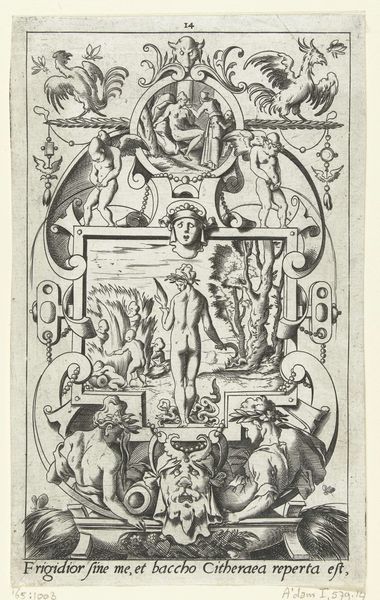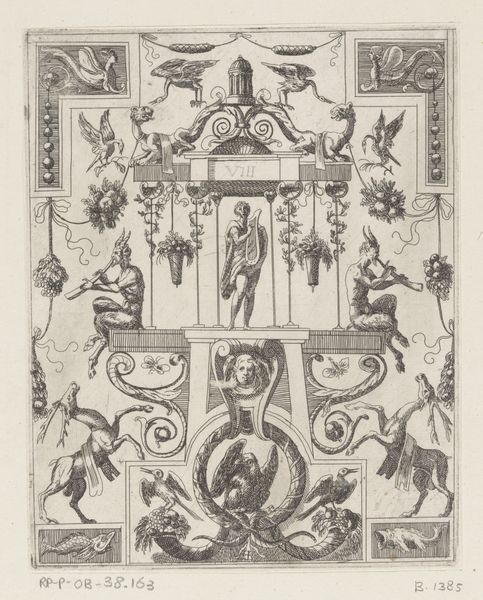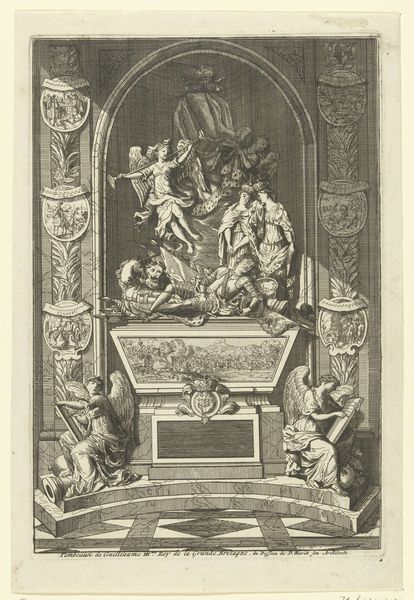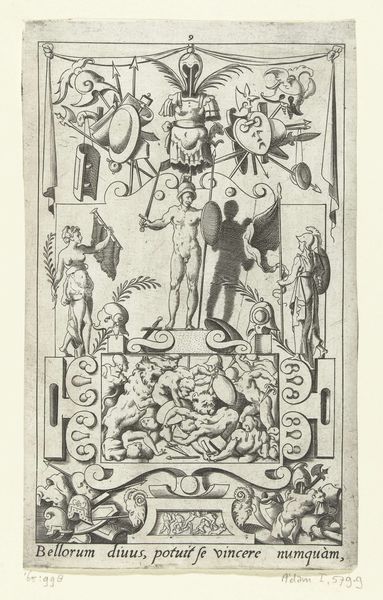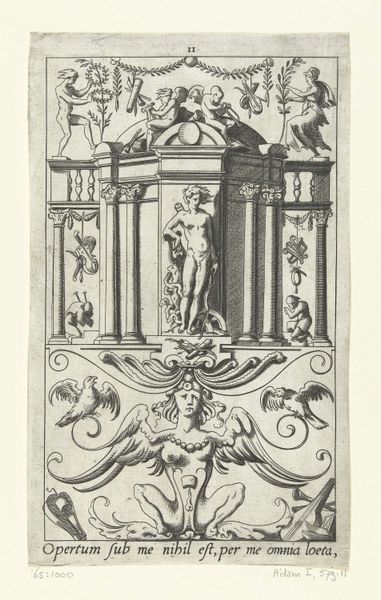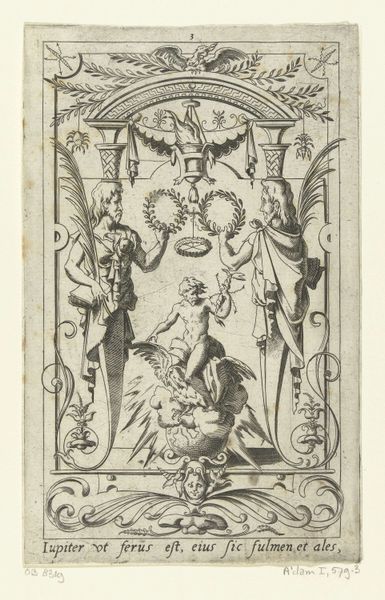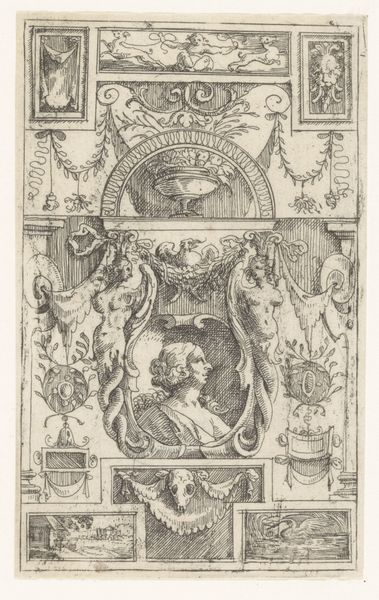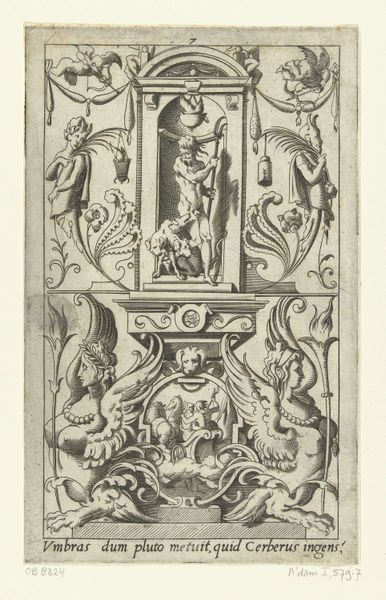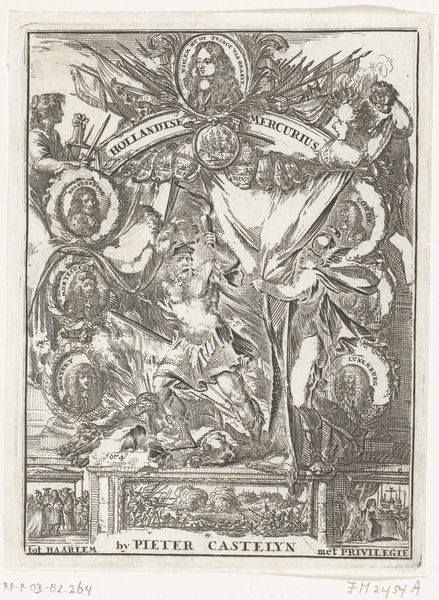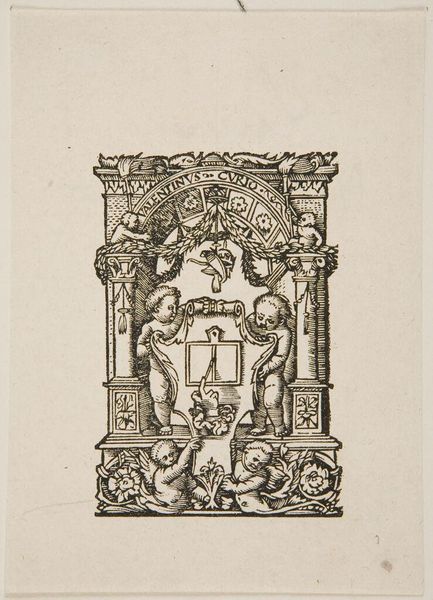
print, engraving
#
allegory
#
pen drawing
# print
#
pen illustration
#
old engraving style
#
mannerism
#
figuration
#
ink line art
#
11_renaissance
#
history-painting
#
engraving
Dimensions: height 173 mm, width 101 mm
Copyright: Rijks Museum: Open Domain
Editor: This engraving, titled "Vulcanus aan het werk," was created sometime between 1551 and 1580 by René Boyvin. The detail is incredible. It feels almost claustrophobic, packed with figures and symbols. What compositional choices stand out to you? Curator: Note how Boyvin has structured the print around a central arch. This arch frames the figure of Vulcanus, drawing our eye immediately to the action at the heart of the image. The strong vertical lines, especially evident in the pillars and weaponry, create a sense of rigid order, while the curving lines of the figures offer a dynamic counterpoint. How do you interpret this interplay of line? Editor: I see what you mean. The vertical lines do lend structure, while the figures introduce movement. I wonder, why does the artist create tension between these conflicting elements? Curator: Consider how the composition uses layering to create a deliberate complexity. Notice how the foreground figures seem to spill out into the viewer's space, while the background, although detailed, recedes. The artist builds visual intrigue with distinct registers to explore thematic juxtapositions between activity and decoration. Editor: I’m beginning to understand that this print is far more deliberate than it initially seemed. There are compositional decisions, with their contrasts and visual organization of forms, that add significant meaning. Thank you! Curator: Indeed. By attending to such elements as line, shape, and spatial relations, we can decode Boyvin's visual language and start to appreciate how he's conveying symbolic depth within a deceptively intricate frame.
Comments
No comments
Be the first to comment and join the conversation on the ultimate creative platform.
